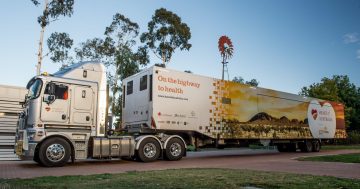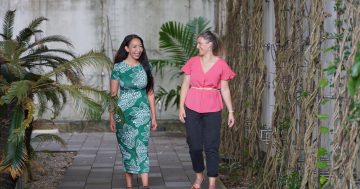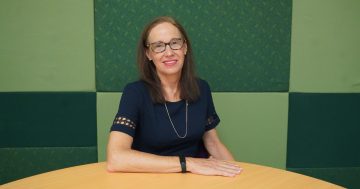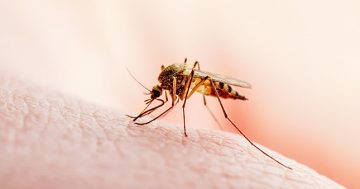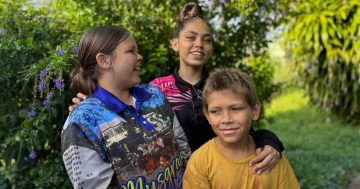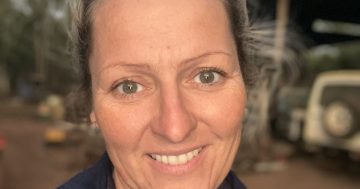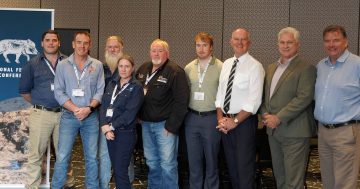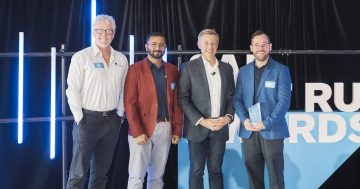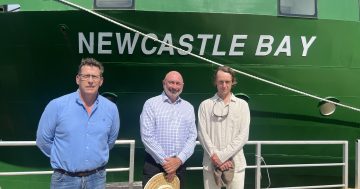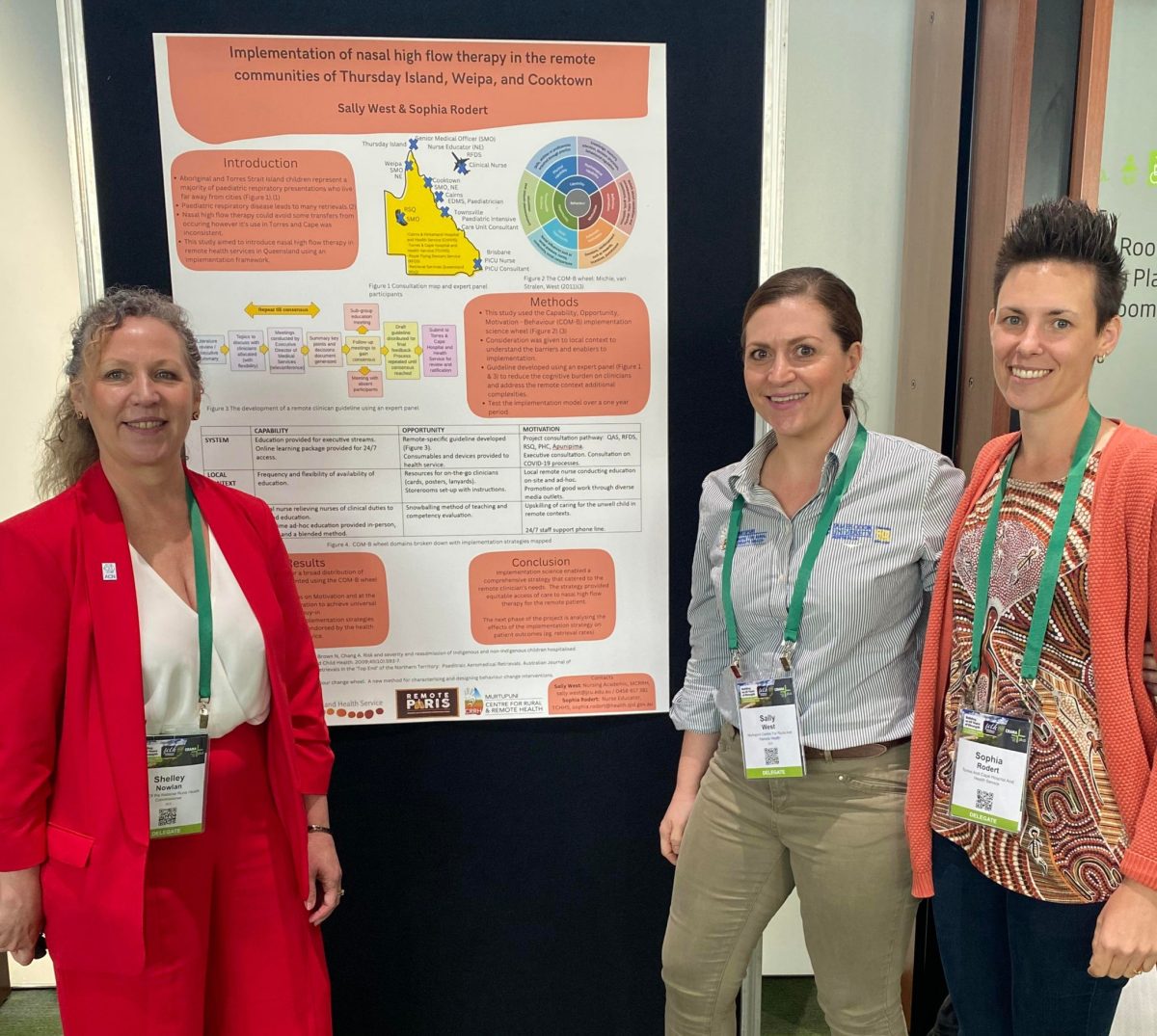
Sally West and Sophia Rodert spoke about the importance of making nasal high flow therapy accessible in remote communities. Photo: Sally West.
Torres and Cape Hospital and Health Service staff highlighted the need for local respiratory disease care in the remote communities of Cape York and Thursday Island last month at the international WONCA conference and the national CRANAplus conference.
Weipa Integrated Health Service CN Sally West and nurse educator Sophia Rodert presented their research, Implementation of nasal high flow therapy in the remote communities of Thursday Island, Weipa and Cooktown, after years of data collection focused on paediatric patients.
Ms West explained that children did not receive the same standard of care across the board, whether due to distance or lack of healthcare providers who could offer the therapy.
“There was a really huge discrepancy of who got what care and how they got it,” she said.
“That means we had a greater burden on our community members when they wanted to receive a low invasive breathing device that they could have received locally.”
She said that previously, children often had to be flown to city hospitals such as ones in Cairns or Townsville, and “it was always with respiratory disease more than any other disease”.
“Previously in the Cape and Thursday Island, there were a lot of patients that needed to be retrieved by the Royal Flying Doctors or Retrieval Service of Queensland to be sent to the city so they could receive nasal high flow therapy,” she explained.
Nasal high flow therapy is said to be a better alternative to standard oxygen therapy, which was previously the only option in remote settings other than the highly invasive ventilator.
“It flows through a higher amount of air and so it really allows the person that is having the therapy to be able to use less energy when breathing,” she said.
Results showed that the use of nasal high flow therapy in the three communities doubled after implementation.
“That was excellent because it showed that we had an increased uptake and people were gaining access to that treatment when they needed it, instead of waiting to be retrieved to an external site.”
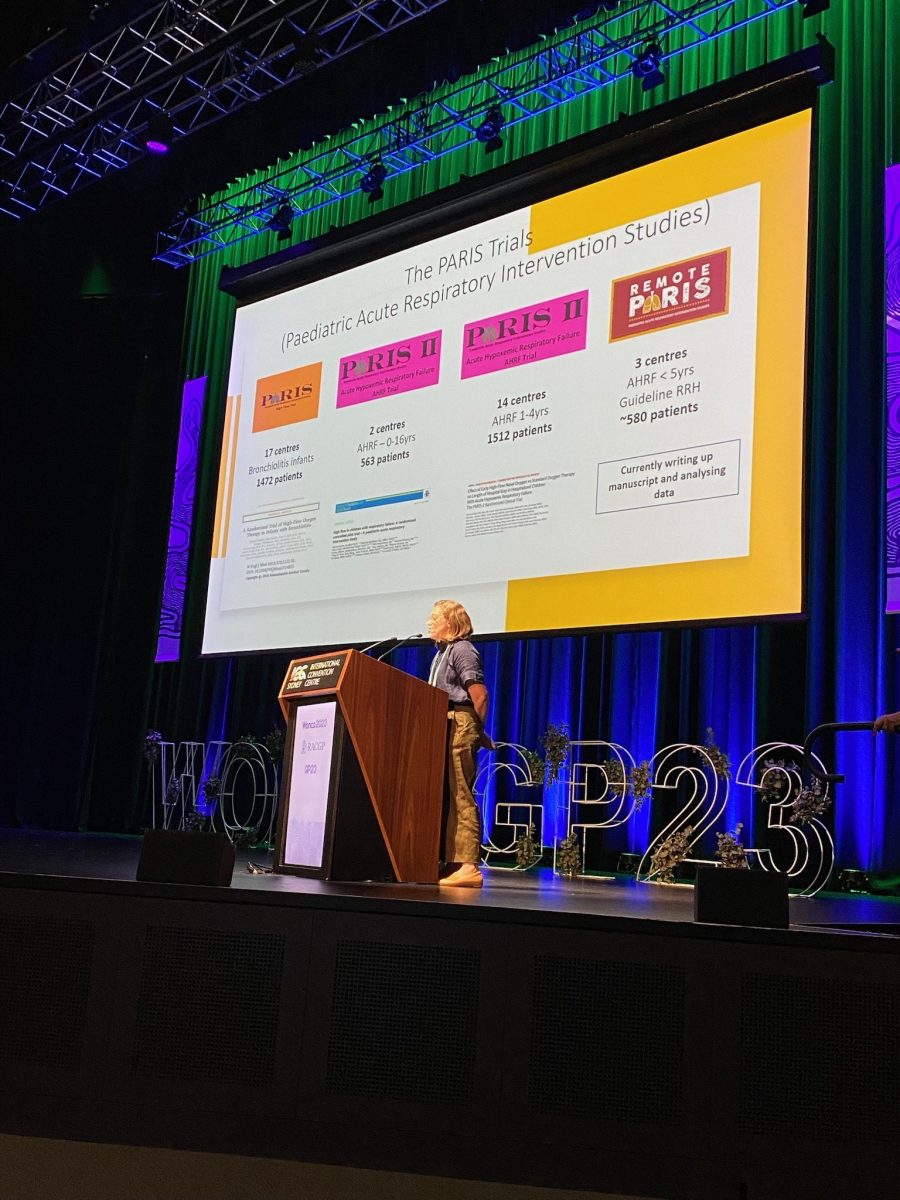
Sally West presented the next phase of bringing respiratory disease care to remote communities at the recent WONCA conference. Photo: Sally West.
Though only the three sites were studied, Ms West explained that other communities in the Cape received education and breathing devices.
“We’ve been able to invite anyone in any island or community in the Torres and Cape to attend nasal high flow therapy teaching sessions, so there has been a knock-on effect to the wider community,” she said.
The next phase of the research, Paediatric Acute Respiratory Intervention Study on Country (PARIS on Country), will add Bamaga as a study site.
The research has managed to pick up a $2.6 million National Health and Medical Research Council grant, which will help to expand the data collected in Cape York and Thursday Island to 18 other rural and remote sites in Northern Queensland.
“It’s not just looking at nasal high flow therapy this time,” she said.
“It’s looking at the whole picture of respiratory diseases in remote communities and takes into context the challenges of accessing healthcare in the remote and rural setting.”


